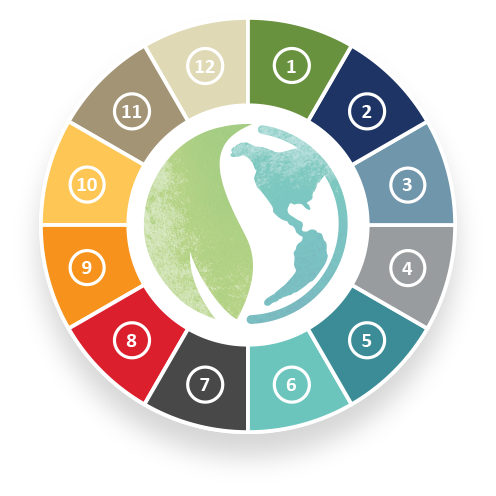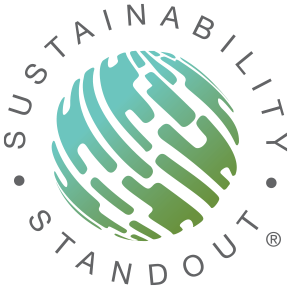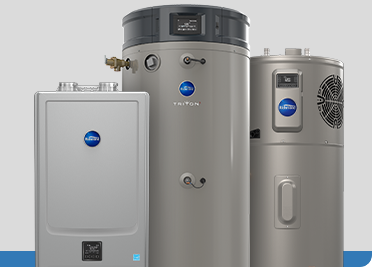Innovating—One Sustainable
Product at a Time
To create sustainable products, it takes dedication, rigid adherence to best practices and a relentless passion for making the world a better place. So we’ve incorporated sustainable thinking into our Product Development Process (PDP). Along the way, we’ve developed some visual methods for helping homeowners and business owners find the products that will reduce their environmental impact and support their own sustainability goals.
Our Sustainability Strategy, Visualized
Every new product we design will go through our Product Development Process based on industry best practices. Early in the PDP, we gather key representatives from our R&D, Sourcing, Manufacturing and other teams for Sustainability Strategy Sessions. In these sessions, our teams consider eight factors focusing on the product’s impact on the environment, and four on its social impact.
Before any new idea makes it through the PDP, we consider its production, its use and its end of life—and our sustainability strategy wheel helps us explore ways to integrate sustainability into the final product.


Sustainability Standout Seal
While many Richmond® products have sustainable features, certain products stand out as a cut above—and those products earn the Sustainability Standout® seal. It’s given based on a number of internally designated factors relating to product attributes like energy efficiency, longevity, CO2 reduction and more. We’re in the process of adding the seal in places including the product information pages, marketing and training materials—all to help professionals recommend responsible products and consumers make smart purchasing decisions.How The Seal is Earned
Due to the wide variety of products within Rheem’s portfolio, each product type has its own defined set of criteria to highlight the most sustainable products within the specific product category. During our Product Development Process, we look at key features and benefits such as, energy efficiency, water conservation, responsible materials, air emissions reduction, innovative eco features and being built for a longer lifespan. These features have corresponding points within each product category framework, those with enough attributes bear the seal.Sustainability Standouts
We’re working to bring the Sustainability Standout seal to all the products that qualify. Look for it on upcoming product pages, videos and other marketing materials to help you identify the product solutions that have earned a closer look.


Want to learn more about our sustainability commitments, goals and efforts?
Visit our A Greater Degree of Good™ page.
EXPLORE SUSTAINABILITY